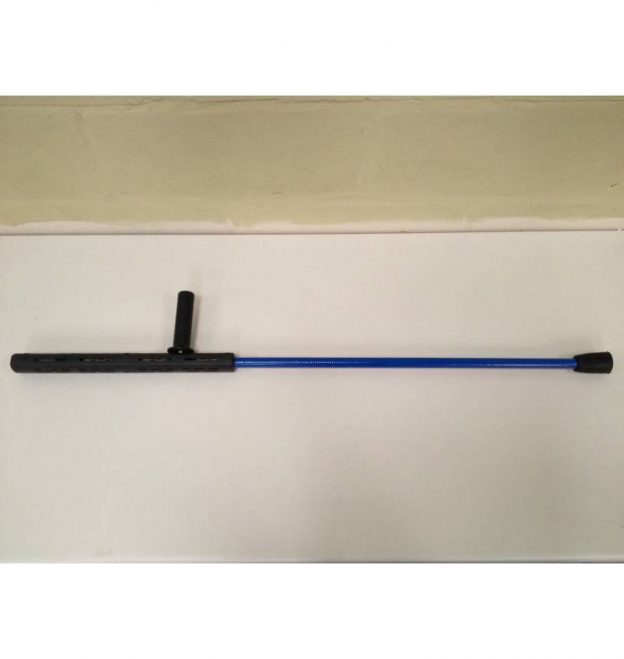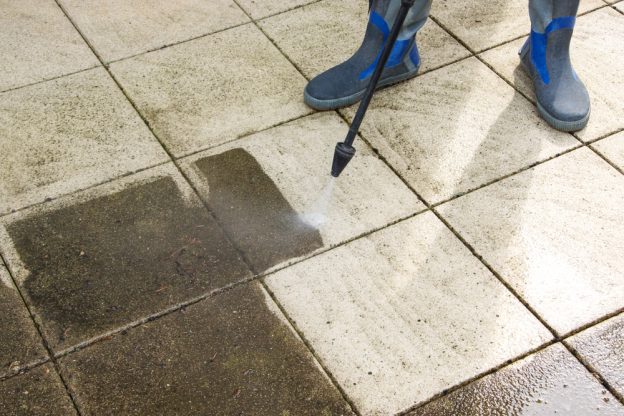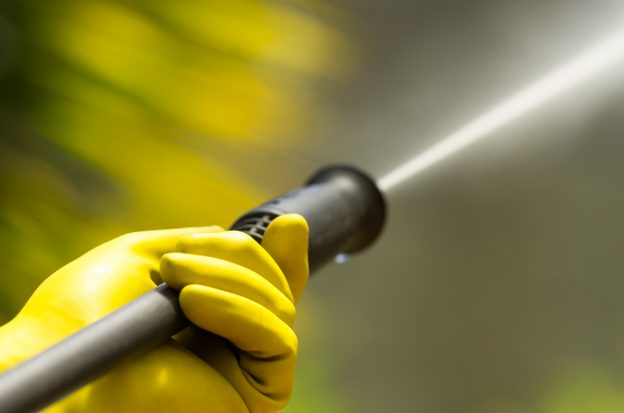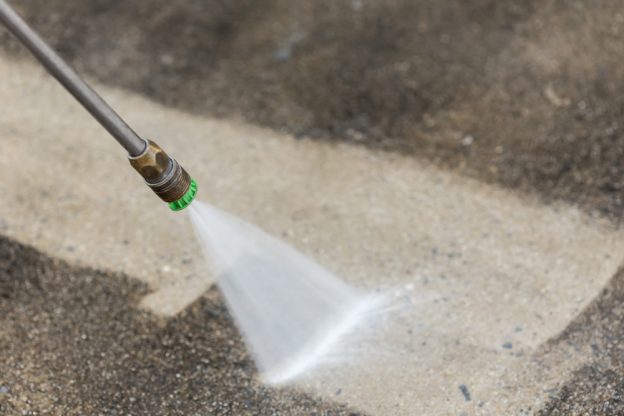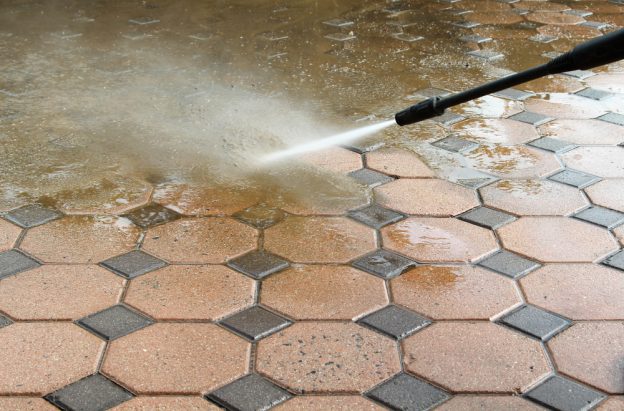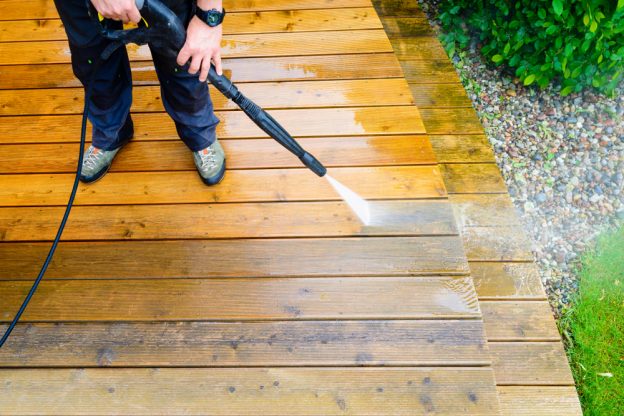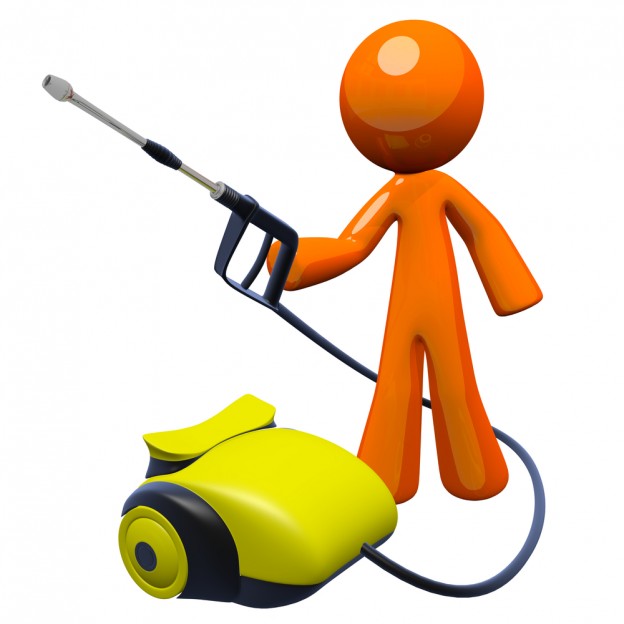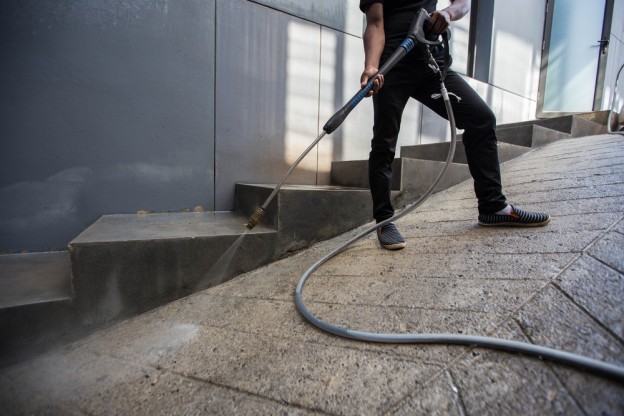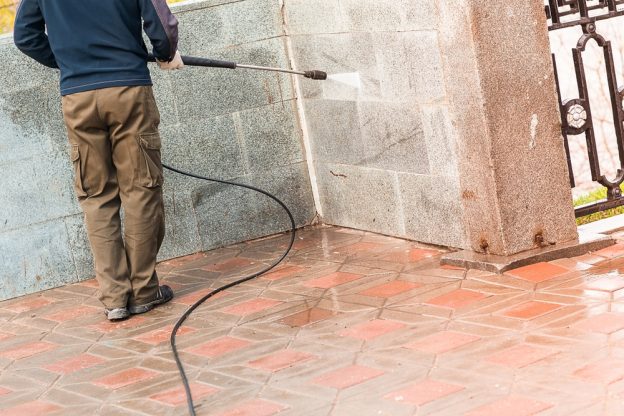Pressure washers are an invaluable cleaning tool which will make you wonder how you ever did without them.
Comprising of a pump, a high-pressure hose and a cleaning lance with a trigger switch, a pressure washer allows water to pass through the machine and be put under pressure by the pump. It is then expelled from the hose and out from the nozzle at the end of the lance. Although quite straightforward to use, it is important to choose the right jet washer for your specific requirements.
For example, do you need a hot or cold water pressure washer? Coldwater versions are sufficient for most situations whereas hot water washers will remove stubborn residue quite easily.
With greater cleaning power, hot water jet washers have the facility to produce steam which is useful for cleaning stubborn deposits plus killing bacteria.
Pressure Washing Terminology Explained
You may not be familiar with all of the terminology used by pressure cleaning manufacturers, which is why our experts at Britclean have put together this glossary.
Operating Pressure and Water Flow
The pressure the pump applies to the water when it leaves the nozzle plus the volume of water per minute or hour the machine can deliver.
The cleaning power of a pressure washer is dependent on the operating pressure, which is measured in bar or MPa.
Water Flow can be expressed in litres or gallons per minute or per hour. The pressure is not a sole indication of effective cleaning as water volume is also a crucial part. For example, high pressure used with low water volume produces powerful but narrow water jet that is ideal for cleaning small areas of ingrained dirt but is not as effective on larger areas with plenty of debris that needs removing. For these cases, a pressure washer with a large water volume will clean more efficiently.
It is quite common to view a washer with a high-pressure rating as being the better option, whereas a jet washer should be chosen based on what it is needed to clean and not just the pressure rating.
Max Temp Inlet (°C)
The maximum temperature of the water going into your machine.
Hot water gives extra power to clean stubborn dirt such as grease and grime, plus some cold washers can be used with hot water but this will be supplied by a separate heater. The maximum inlet temperature tells you the level of hot water the machine can take.
For hot water pressure washers, the design inlet temperature should not be exceeded as this can damage the internal machinery.
Motor Size
The size of the motor that drives the pump which produces the water pressure.
The motor size is typically expressed in Kw for an electric washer and HP for an engine-driven version. The motor of the jet washer needs to be the correct size to match the pump to ensure the best performance. For more economic machines the pump may be smaller than the ideal size, which means it needs to work harder to create the desired flow and pressure and have a lower life span.
For industrial pressure washers, it is normal to use slower revving motors with a larger pump which means it can be used for longer periods without fear of overheating.
Detergent Tank Capacity (ltr/gal)
An integral detergent tank will feed the cleaning solution directly on to the cleaning surface. Sometimes even water under pressure does not provide sufficient cleaning power whereas some machines have a facility to add detergent for increased cleaning power for stubborn residue plus a larger tank needs refilling less often.
Machine Dimensions (cm)
The physical size of the jet washer, which can sometimes be larger than you might think. Storage and portability need to be taken into consideration plus manoeuvrability, depending on where the washer is being used.
Weight (Kg)
The physical weight of the machine. If you need to transport your washer this is a very significant consideration. Also, do not forget that hot water versions are heavier.
Fuel Tank/Fuel Consumption (Hot Water Versions)
This is the capacity and consumption of fuel to feed the burner.
The majority of hot water pressure washers have a boiler that is normally heated by a burner using kerosene. The capacity and consumption of the fuel tank show how long the washer can run before it needs refilling. For diesel-powered machines, the fuel tank will usually power the pump and the burner.
Hot water jet washers are also available with electrically heated boilers that offer limited temperatures. These machines are used when the use of kerosene is not possible.
Want to Know More? Get in Touch Now
If you want to know more about specific areas of our range of pressure washers, please contact us today.
Britclean is the leading supplier of jet washers, including renowned manufacturers such as Karcher and Nilfisk.

